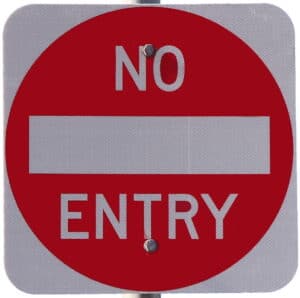Now and then, I find a book that significantly changes my way of thinking. One of those books is The Life You’ve Always Wanted: Spiritual Disciplines for Ordinary People by John Ortberg. The author describes how, in the first century AD, much of the rabbinical writings dealt with circumcision, keeping the Sabbath, and dietary laws. Why? Why those topics  and not the weightier issues of the faith? He maintains that these customs set the Jews apart from all other peoples. These practices identified them as different, as God’s chosen ones. Circumcision, Sabbath and dietary laws served as boundary markers for the Hebrew nation. Everyone who observed these practices was included in the circle of belonging. Those who did not observe them fell outside the circle. Unfortunately, drawing circles tends to lead to an “us vs. them” mentality. Those on the inside tend to look down their noses at those on the outside. We belong. They don’t.
and not the weightier issues of the faith? He maintains that these customs set the Jews apart from all other peoples. These practices identified them as different, as God’s chosen ones. Circumcision, Sabbath and dietary laws served as boundary markers for the Hebrew nation. Everyone who observed these practices was included in the circle of belonging. Those who did not observe them fell outside the circle. Unfortunately, drawing circles tends to lead to an “us vs. them” mentality. Those on the inside tend to look down their noses at those on the outside. We belong. They don’t.
It’s no wonder then, John Ortberg writes, that Jesus often butted heads with the religious establishment over these very issues. He healed on the Sabbath. Gasp! No good Jew would work on the Sabbath! His disciples picked grain to eat on the Sabbath and didn’t bother to wash their hands first. Shameful! They can’t be good Jews if they do that!
Sound familiar? How many Christian boundary markers can you name? Conservative. Pro-life. Anti-gay. And let’s not even get started with worship bands and the music they play in church these days.
Before Mr. Ortberg’s book, I had already read through all four gospels, trying to get a better understanding of who Jesus was and how he responded to the circumstances around him. Guess what. He didn’t worry about boundary markers. As Mr. Ortberg points out, he was more concerned with their heart condition. Is this person moving toward God? Or is his heart stumbling over other things, like boundary markers? That’s why Jesus hung out with tax collectors and prostitutes and people of questionable repute, because He could see their hearts were turning toward the Father. In fact, the only people I see him getting ticked off with are the religious people, those inside the circle. The Samaritan woman who had divorced and remarried seven times and now had a new live-in boyfriend? No condemnation. The woman caught in the act of adultery? No condemnation. Not a word. Contrast that with the way we often treat people whose sin is obvious.
Was Jesus concerned about whether the Jews were getting a fair shake from the Romans? What about taxes? Not in Luke 20:24-25. Was he concerned about the courts? Not in Luke 12:13-14. He resisted all efforts by the people to get him involved in politics and the government. Why? Because that wasn’t His purpose, not His focus. He wasted no time lobbying the government for better treatment of His people as a whole. Instead, His purpose, His sole focus was on individual hearts. Is this one taking steps toward God and heaven? Or is he still stumbling over boundary markers?
Lately, I find myself questioning many of my own beliefs, the preferences and prejudices I’ve accumulated. Is this a boundary marker? Does this attitude draw a circle that separates me from others?
I’ve stumbled over that circle quite a few times. But slowly, ever so slowly, I’m starting to see things from Jesus’ perspective, learning to focus less on circumstances and more on heart direction.
Hopefully, that’s moving me closer to alignment with Jesus’ purpose and focus. Care to join me–outside the circle?

